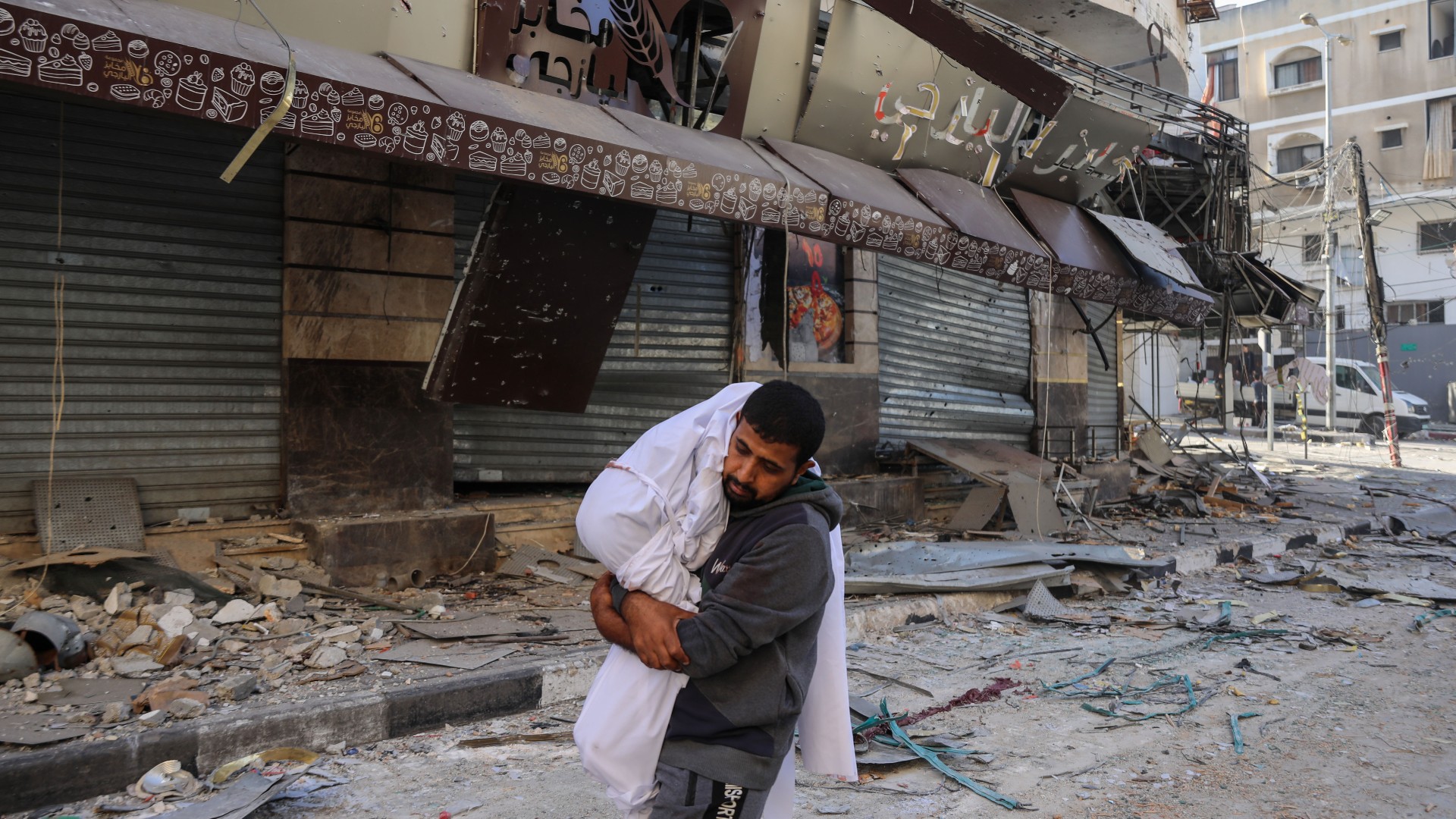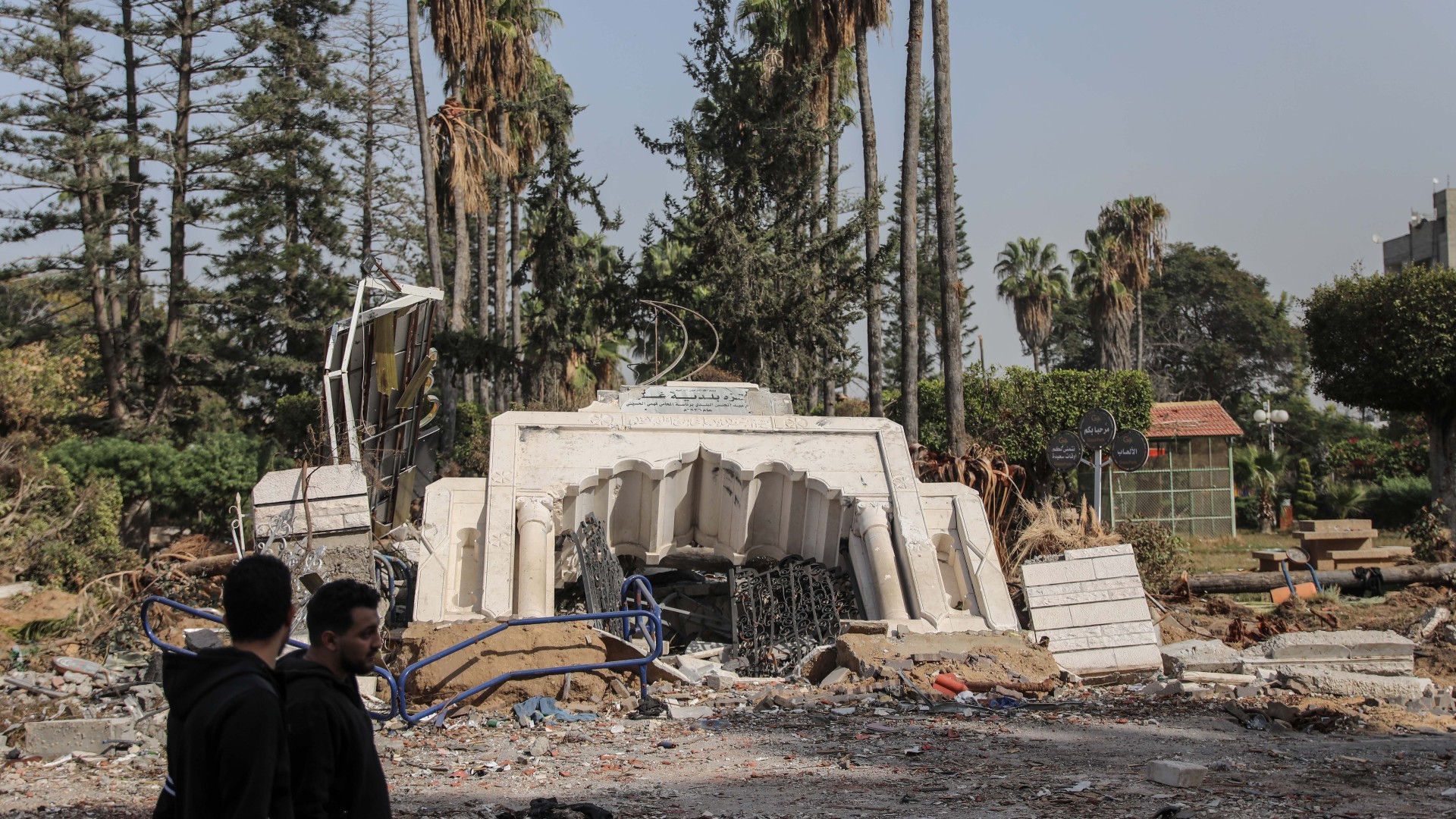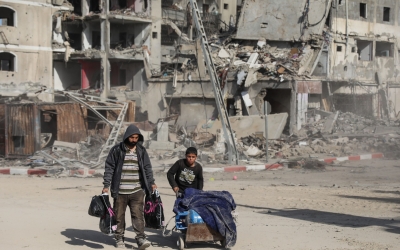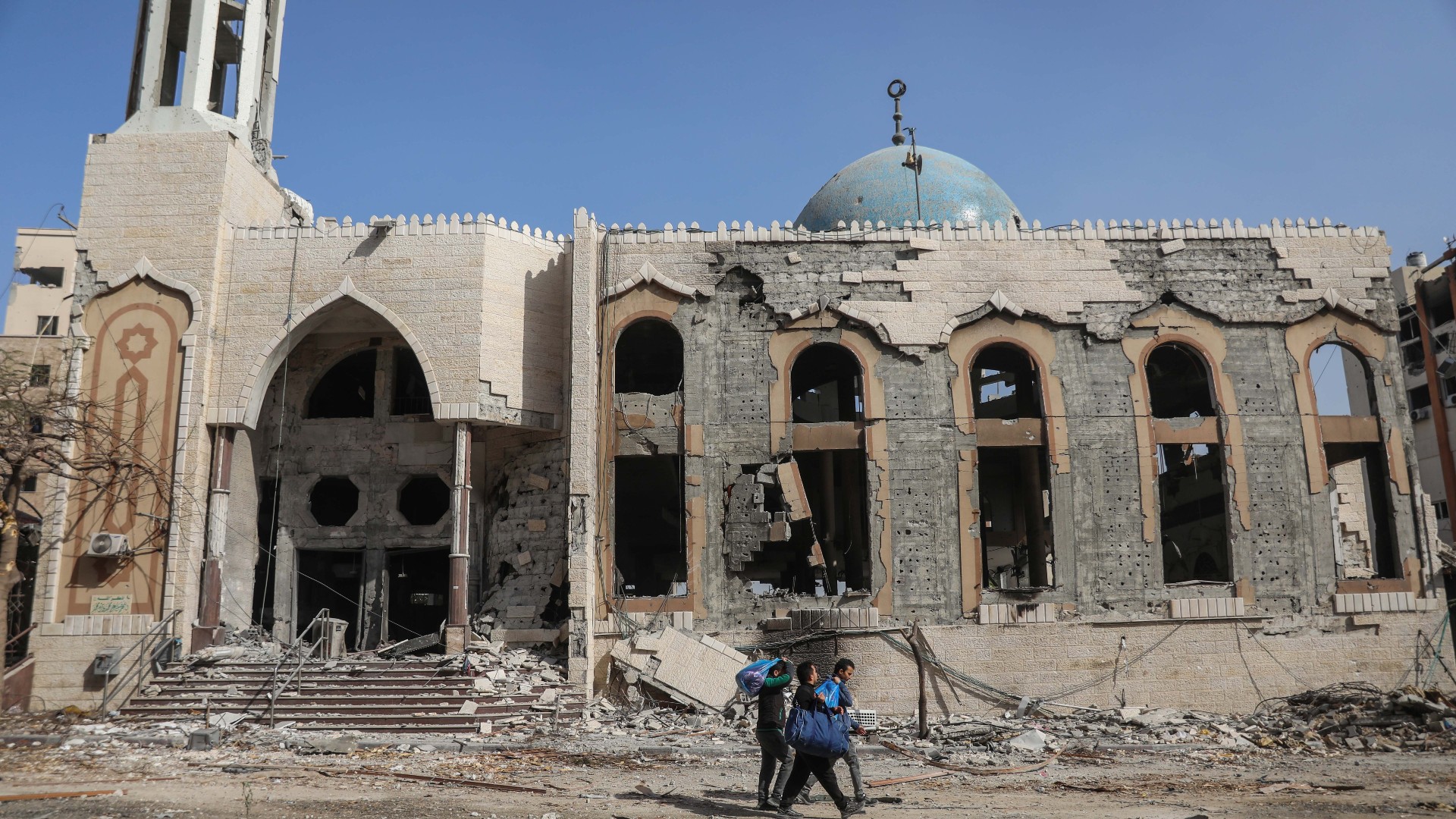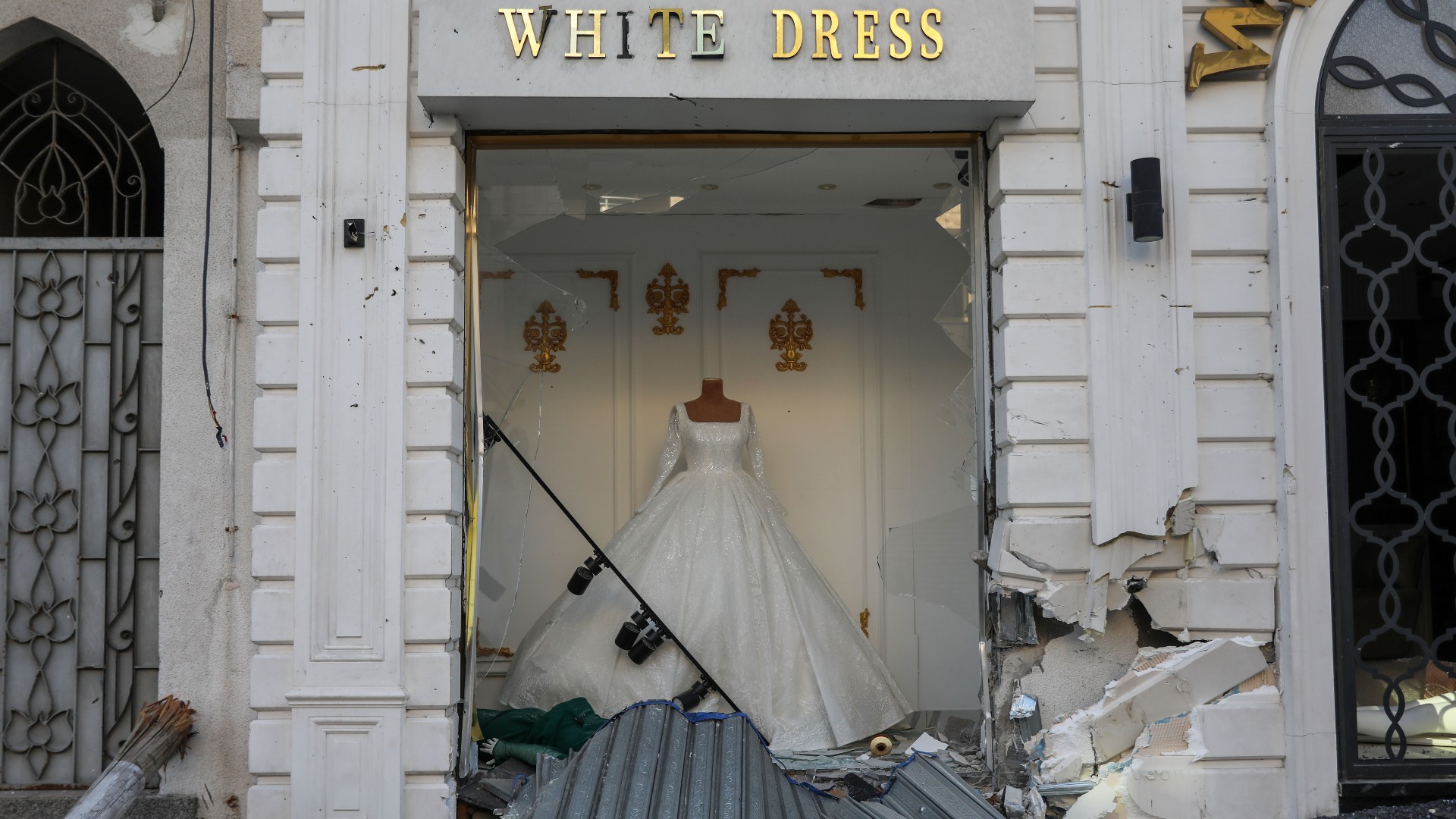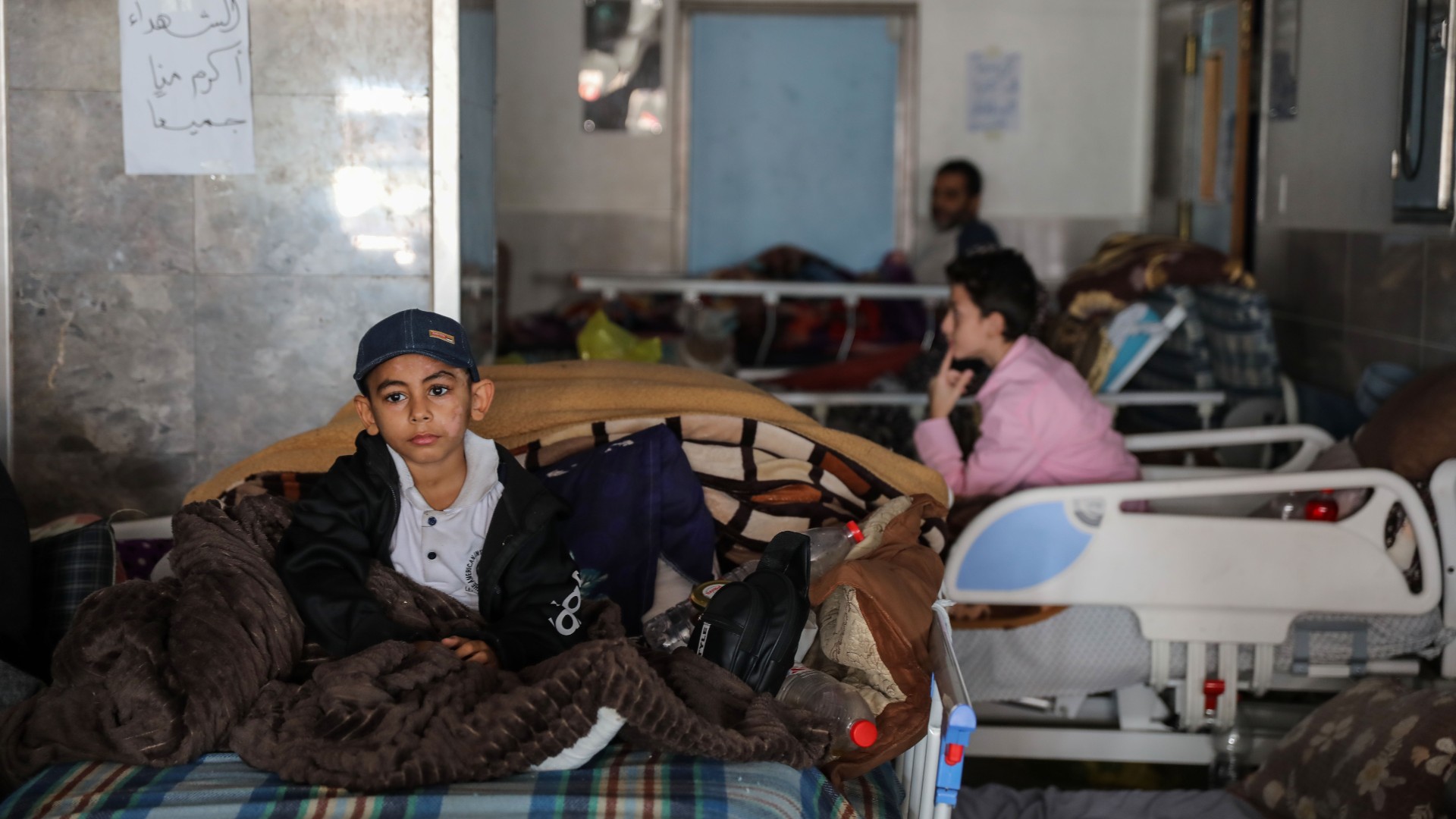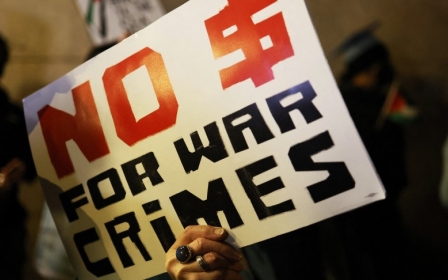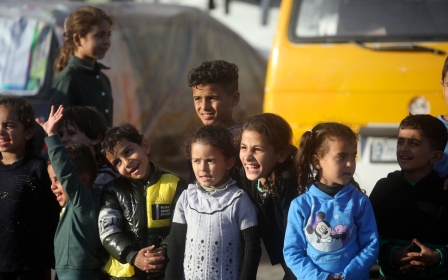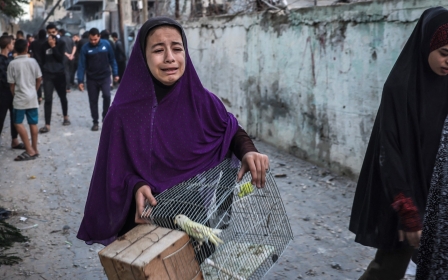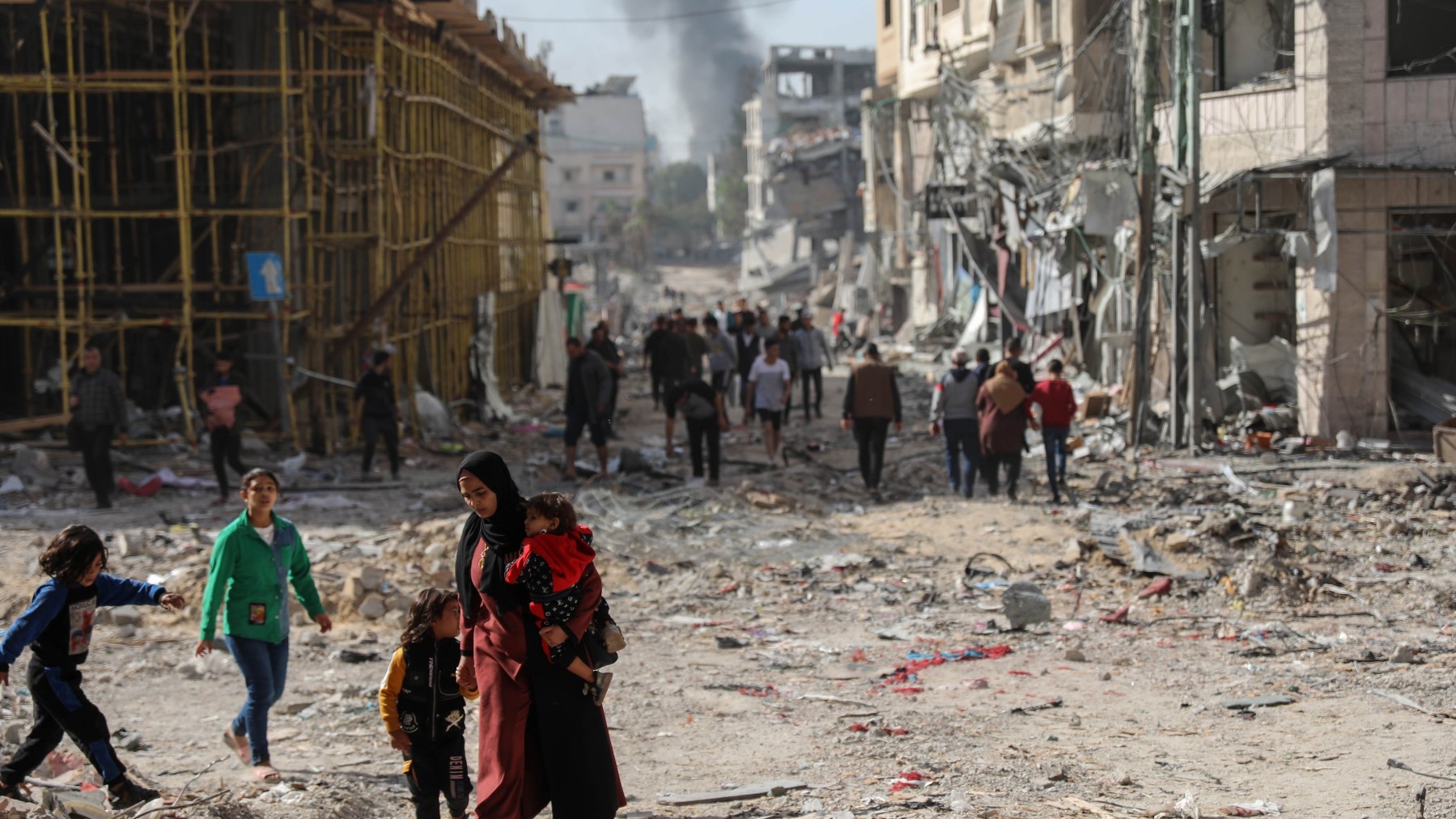
My neighbourhood was vibrant and beautiful. Israel turned it into a wasteland
Nestled along Gaza's coastline, Rimal was an upscale neighbourhood in Gaza City, boasting ice cream parlours, cafes and vibrant boutique clothes shops.
Today, it lies in complete ruin - a clear sign that no part of Gaza, residential or otherwise, is safe from Israeli bombardment.
Since Israel began bombing the coastal enclave of 2.3 million people after Palestinian fighters launched an attack on southern Israel on 7 October, Rimal was one of four areas of Gaza City to face relentless Israeli air strikes.
The bombing was especially devastating where I lived, an area which Israel has claimed served as the headquarters and control centre for the 7 October attack.
I lived in an apartment block on al-Galaa Street, in what was unsurprisingly a densely packed residential area of Gaza City.
New MEE newsletter: Jerusalem Dispatch
Sign up to get the latest insights and analysis on Israel-Palestine, alongside Turkey Unpacked and other MEE newsletters
Today, when I decided to venture out and walk in my old neighbourhood, nothing resembled what once was. Everything was gone - buildings, shops and playgrounds. The places I knew and loved were reduced to heaps of rubble.
The clothing stores I or my wife would frequent to buy outfits for my children were completely destroyed. Only fragments of clothes could be seen under crumbled concrete and twisted pieces of metal.
Omar al-Mukhtar Street, a buzzing boulevard where banks and currency exchanges were based, was completely unrecognisable.
First the banks and currency exchanges were destroyed by Israeli air strikes, then they were looted. Its unclear by whom.
The National Islamic Bank, which Israel has claimed was used to transfer funds for attacks without providing any evidence, was flattened to the ground.
I can vividly remember employees and crowds of customers gathering at its entrance. Some would stand and smoke cigarettes while others would queue up to get their much needed salaries. Now this bank, like several others, was completely gone.
As far as my eyes could see, there was nothing but rubble and dirt craters. Even accessing the roads was difficult due to concrete strewn across the asphalt roads.
A temporary halt in fighting has brought some respite to Palestinians who have endured 48 days of Israeli bombardment.
Israel has "forbidden" Palestinians forced south from return the north, but hundreds have still tried to walk back to see whatever remained of their previous lives.
But after seven weeks of war, the smell of the death still lingered in the air. It fills your nostrils and at times is so strong it turns the stomach.
For the survivors, life here has changed forever. But walking around you wouldn't know it.
There are few Palestinians either brave enough to walk the streets or alive to do so. The place is a ghost town.
An isolated people
Not content with cutting food, water, electricity and fuel supplies to Gaza, Israel also isolated the Palestinian people here by severing communications with the outside world when it destroyed phone and internet services in the territory.
On the first day of the bombing, Watan Tower, which stood opposite a mobile phone company office close to my home, was targeted and destroyed.
Nearby, as expected, we had a number of mosques - 14 to be exact. But as of today, only one is still standing. The rest were either destroyed by air strikes or shelling.
It's a dramatic change from my earliest memories of Gaza City, where I used to pray in the city's many mosques and listen to the various different recitations of the Qur'an.
Now, the only mosque still functioning can barely accommodate a handful of worshippers.
If this war ends, and that's a big if, we might find ourselves praying in the streets.
Israeli bombing didn't spare the shopping malls either - places that used to be the life and soul of this besieged and impoverished city.
Capital Mall, which was based on al-Mukhtar Street, was among those targeted. Although parts of it are still standing, the stores inside were looted. Once again, its unclear by whom.
Then there's Panda Mall, my go-to for groceries and household supplies. It was shelled by Israeli forces. This place was my routine stop for food and essentials.
Supermarkets and newsagents have also been levelled. One of the most important in the neighbourhood was the Atallah Supermarket, owned by the Atallah family. It was bombed, as was the residential block adjoining it, wiping out the Atallah business and most of the family with it.
The attacks killed at least 35 children and young members of the Atallah family. Among them was a young man with a lively sense of humour, who worked as a cashier at the store.
He was always cracking jokes and spreading joy among customers. He will be deeply missed.
Nothing was spared
One of the most heart wrenching scenes for me walking around my city was the long queues of people waiting to buy bread.
A ubiquitous symbol of our culture, I used to buy homemade bread, pastries, pies and cakes from al-Sharq Bakery.
Bakeries are at the centre of life across the Arab world, with bread synonymous with food and even life itself. As recent conflicts have shown us - bread is also an excellent tool for controlling a hungry and impoverished population.
The Sharq Bakery went above and beyond with the pastries it would sell. Walking past the shop, the innovative and unusual treats would rival what's being shown on TV shows like the Great British Bake Off or Amaury Guichon's School of Chocolate.
Nearby, on al-Wahda Street, there were massive craters in the road leading up to al-Shifa Hospital. Clothing stores, bridal stores, bric-a-brac shops – all destroyed.
Even schools were not spared from the violence.
My seven-year-old son Majd attended the New Gaza Primary School for Boys. Located on al-Nasr Street, today it has been appropriated by the Israeli army, which uses it to hold residents it has arrested.
As I walked around, I was reminded of the scenes at al-Shifa itself, which were some of the most painful and inhuman I've ever witnessed.
Up to 7,000 people were trapped inside the hospital without food, water or electricity, while it was surrounded by Israeli forces; including premature babies, critically ill patients, displaced families and medical staff.
Witnessing the bombing of the new maternity building was particularly hard. The building was still under renovation when it was targeted.
Al-Shifa was a gathering place for journalists during previous Israeli assaults, a place where we report on the mounting death toll, but also check up on one another.
For me, the intentions of this war have been laid bare.
If Israel's plan was to eliminate Hamas and the other Palestinian groups and gangs responsible for the 7 October attack they didn't need to level every building.
They didn't need to target hospitals, schools, malls, mosques, churches, water pumps, electricity stations, solar panels and communications facilities.
So far, Israel has destroyed 60 percent of residential buildings in some of the refugee camps in the strip.
Al-Azhar University, where I studied for seven years, was bombed. The streets surrounding it were bombed, and buildings inside the university campus were bombed.
Gaza's landscape has completely changed.
Despite being isolated and suffocated due to a 17-year-long siege, the Palestinian people tried to face the insurmountable odds and make the best of a horrific situation and survive.
But now, Gaza, and my beloved Rimal, is a place of death, destruction and misery.
This is a dispiriting time for Palestinians and as we await the unknown, all we have left are our memories, as everything else lies in ruin.
Middle East Eye delivers independent and unrivalled coverage and analysis of the Middle East, North Africa and beyond. To learn more about republishing this content and the associated fees, please fill out this form. More about MEE can be found here.


